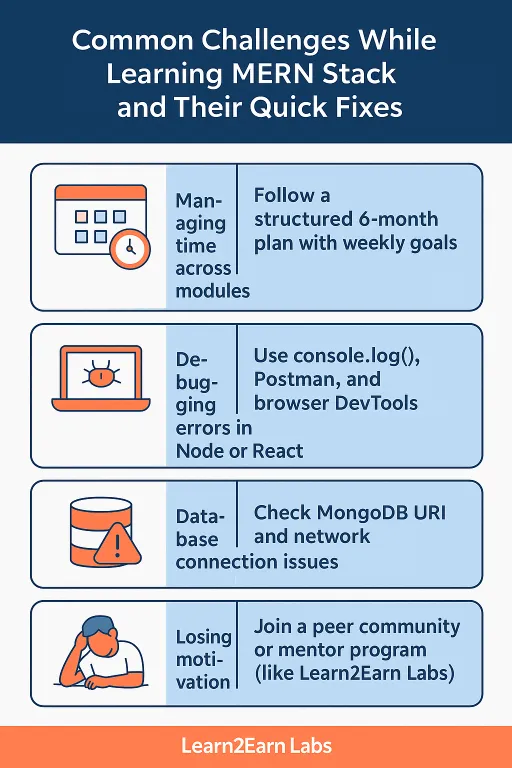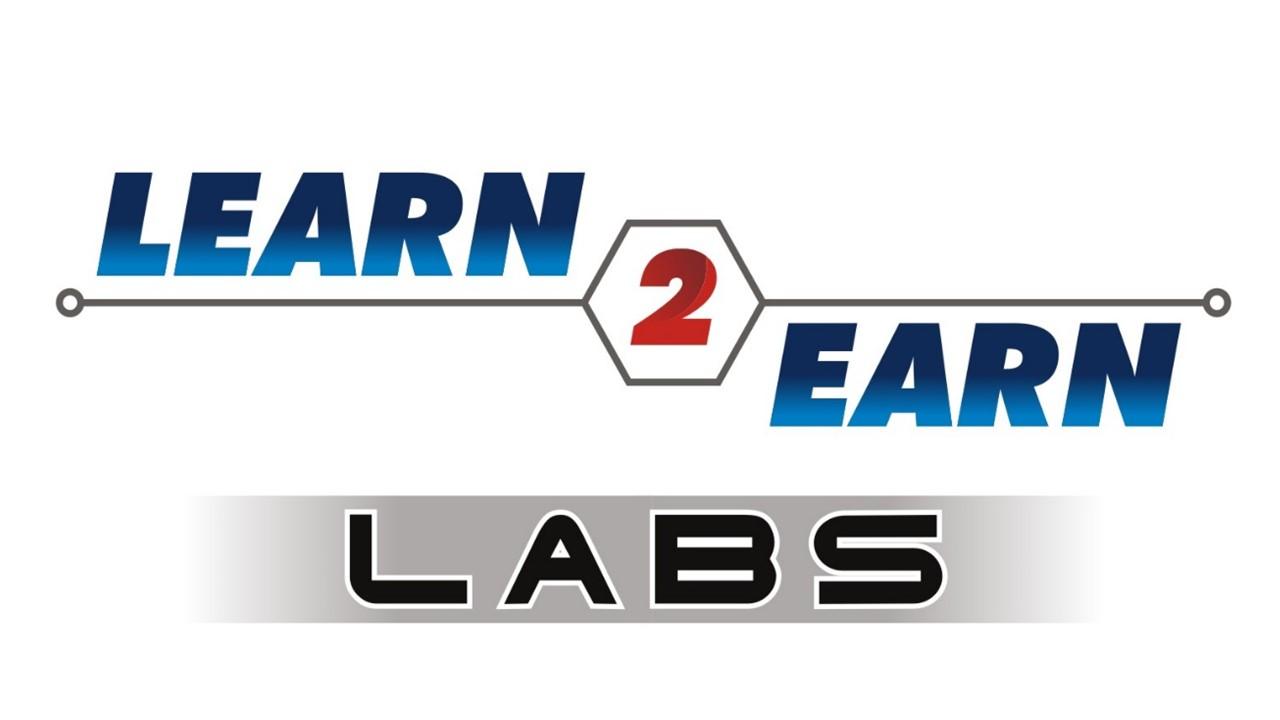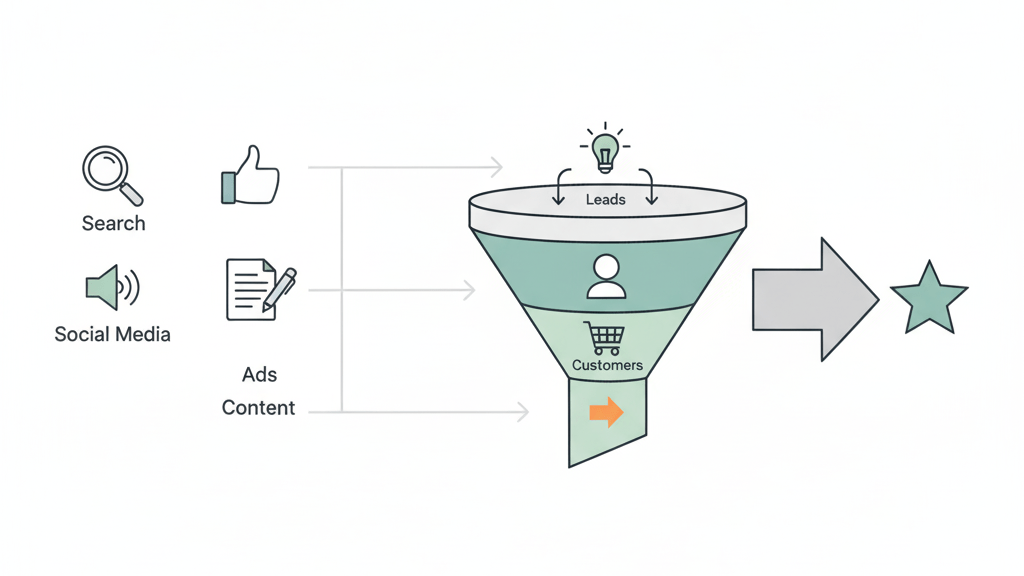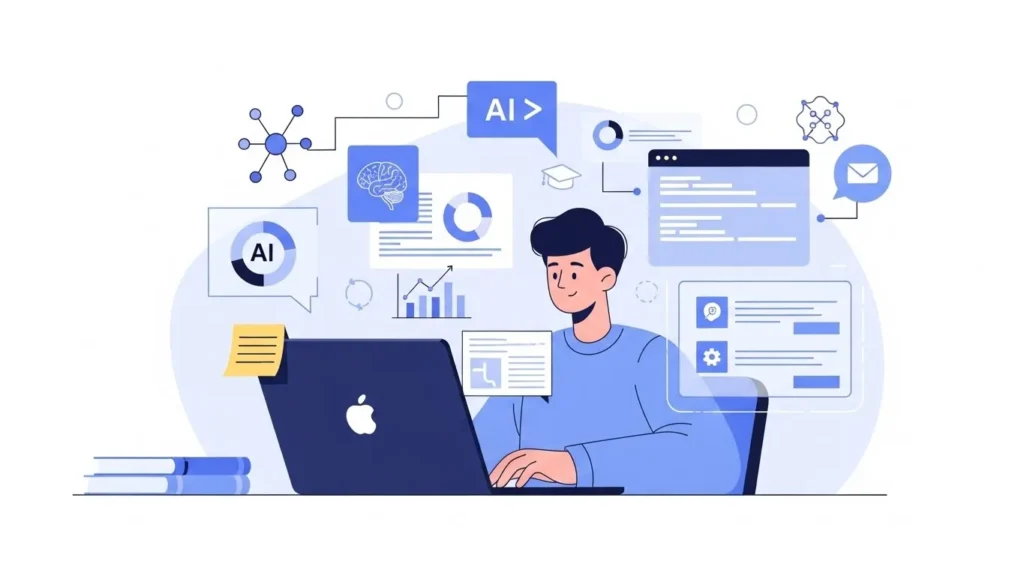How to Become a Job-Ready MERN Stack Developer in 6 Months

The demand for full-stack developers is growing every year.
Companies now want professionals who can build both the frontend and the backend of a web application — quickly and efficiently.
That’s where the MERN stack (MongoDB, Express.js, React, Node.js) comes in.
This blog explains how you can become a job-ready MERN stack developer in six months — even if you’re starting from scratch.
Reference: Read MongoDB’s official MERN overview for a quick introduction.
Turn your coding passion into a profession — start your MERN journey today!
Table of Contents
ToggleUnderstanding the MERN Stack
What Is MERN Stack?
MERN is a powerful JavaScript-based framework that helps developers build end-to-end web applications using a single language — JavaScript.
It includes:
MongoDB – Database Layer
Express.js – Backend Framework
React.js – Frontend Library
Node.js – Runtime Environment
Why Learn MERN in 2025
It uses one language throughout (JavaScript).
It’s highly demanded in startups and IT companies.
It supports rapid prototyping and scalability.
6-Month Roadmap to Become a MERN Stack Developer
Month 1: Strengthen Core Web Foundations
Focus Areas
HTML 5 – structure of web pages
CSS 3 – layouts, flexbox, responsiveness
JavaScript (ES6+) – syntax, loops, functions, DOM manipulation
Basic Git & GitHub – version control
Practice Tasks
Build a personal portfolio page
Create a simple calculator or to-do list using JavaScript
Tip: Use freeCodeCamp to master fundamentals through projects.
Month 2: Learn React.js for Frontend Development
Focus Areas
React components, props, and state
Hooks (useState, useEffect)
Routing with React Router
Conditional rendering and forms
Mini-Projects
Weather app using API calls
Personal blog or notes application
Outcome
By the end of this month, you should be able to design dynamic, responsive, and interactive front-end interfaces.
Build real projects, gain real skills, and become job-ready in just 6 months
Month 3: Dive into Backend with Node.js & Express.js
Focus Areas
Basics of Node.js (server setup, modules, NPM)
Creating REST APIs with Express.js
Handling requests (GET, POST, PUT, DELETE)
Middleware and error handling
Mini-Projects
REST API for a product catalogue
Contact form backend with Express
💡 Reference: Read Node.js Guide on W3Schools for practical examples.
Month 4: Master MongoDB and Database Integration
Focus Areas
Introduction to NoSQL concepts
CRUD operations (Create, Read, Update, Delete)
Connecting MongoDB with Node and Express
Mongoose Schema Design
Mini-Projects
Student management system
User authentication module with MongoDB
Outcome
You can now connect the frontend and backend to make a complete full-stack application.
Month 5: Build Full-Stack Projects
Focus Areas
Integrating React Frontend with Express Backend
JWT Authentication & Cookies
API integration and error handling
Hosting and deployment (basic overview)
Project Ideas
E-commerce Website – product listing, cart, checkout
Blog Application – user login, post creation, comments
Job Portal System – recruiter and candidate modules
Skills Gained
Complete frontend-backend integration
Practical experience with real-world features
Example Reference: React + Express Full Stack Tutorial – freeCodeCamp
Month 6: Polish, Practice & Prepare for Jobs
Focus Areas
Version control (Git) & project deployment (GitHub Pages / Render / Vercel)
Writing clean, commented code
Basic testing and debugging
Understanding Agile and API documentation
Portfolio Building
Upload your projects to GitHub or a personal portfolio site.
Write short case studies explaining each project.
Interview Preparation
Practice JavaScript & React questions.
Learn common API and database questions.
Prepare to discuss your own projects confidently.
Your dream tech career starts with one step — learn MERN Stack now!
Essential Tools for a MERN Stack Developer
-
VS Code – Code editor
-
Postman – API testing
-
MongoDB Compass / Atlas – Database management
-
Git & GitHub – Collaboration and version control
-
Node Package Manager (NPM) – Library installation
How to Become Job-Ready
1. Focus on Projects, Not Just Theory
Employers prefer candidates who can build, not just explain.
Create at least three complete MERN applications.
2. Contribute to Open Source
Join open-source projects on GitHub. It boosts credibility and teamwork experience.
3. Learn Deployment
Understand how to deploy your projects using Vercel, Render, or AWS EC2.
4. Build a Strong LinkedIn & GitHub Profile
Share your progress, blogs, and projects to attract recruiters.
5. Practise Interview Questions
Review common questions from:
-
JavaScript
-
React Hooks & Lifecycle
-
Node & Express Middleware
-
MongoDB Queries
Common Challenges and How to Overcome Them
| Challenge | Quick Fix |
|---|---|
| Managing time across modules | Follow a structured 6-month plan with weekly goals |
| Debugging errors in Node or React | Use console.log(), Postman, and browser DevTools |
| Database connection issues | Check MongoDB URI and network permissions |
| Losing motivation | Join a peer community or mentor program (like Learn2Earn Labs) |

Career Opportunities After MERN Training
Full-Stack Developer
Frontend Developer (React)
Backend Developer (Node & Express)
Web Application Engineer
Freelance Developer / Startup Founder
💼 Learn more about job paths on Jobs – MERN Stack Developer.
Conclusion
Becoming a job-ready MERN stack developer in six months is possible with discipline and consistent practice.
Start small, build every week, and focus on real projects.
By the end of this journey, you will not only know how to code — you’ll be ready to join the industry with confidence.





